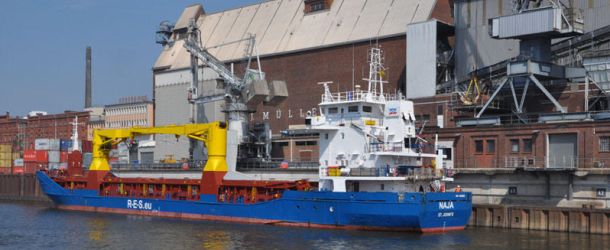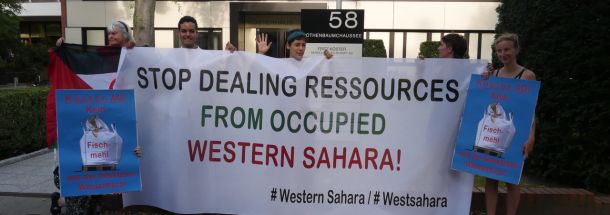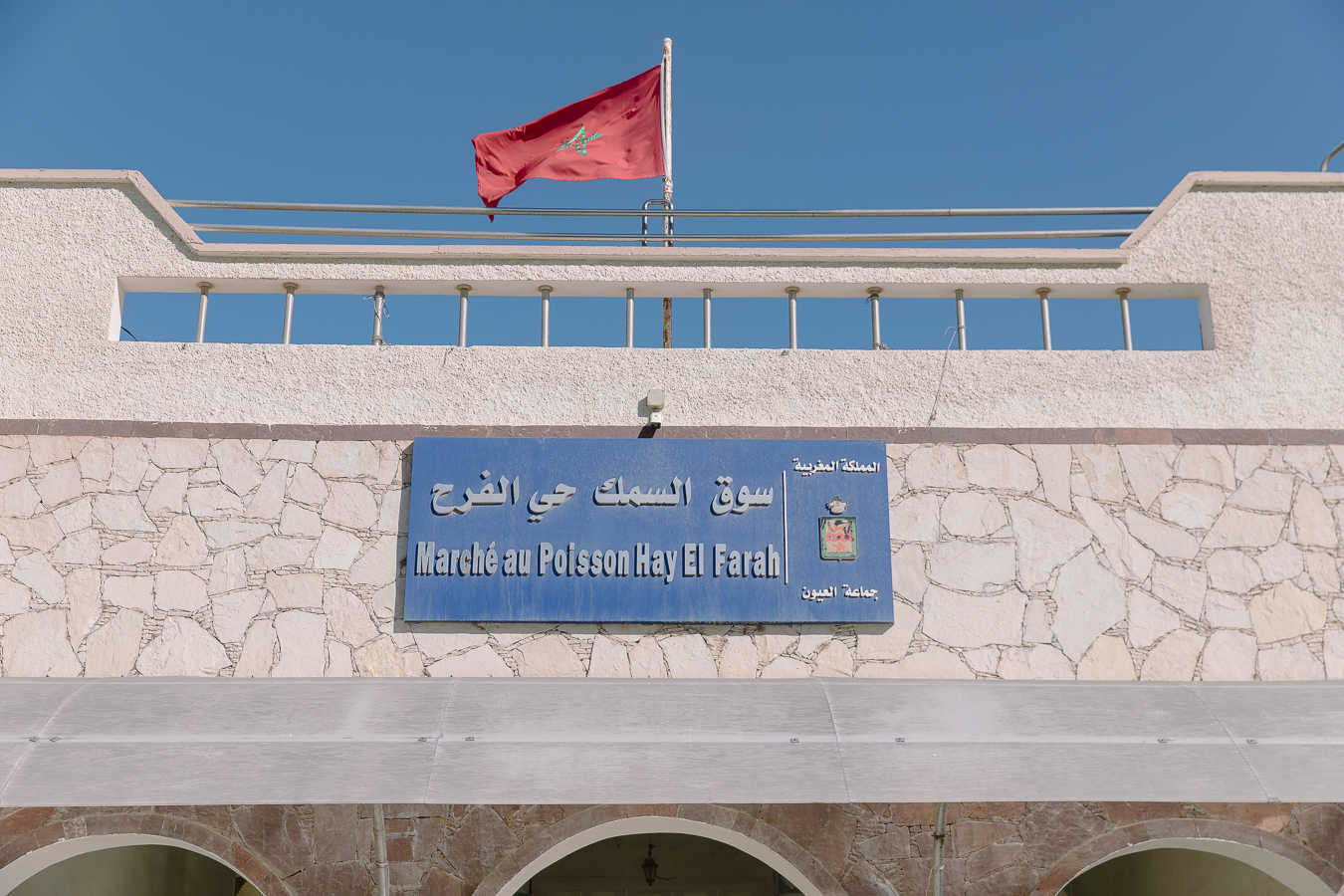
The Bremen port authorities have now confirmed WSRW’s hypothesis that a shipment of fishmeal from Western Sahara arrived in Bremen (Germany) two weeks ago – though they erroneously locate the town of origin, El Aaiun, in “Morocco”.
Two weeks ago, WSRW reported on the plausible arrival of a new cargo of fish meal from occupied Western Sahara to Germany. The cargo ship Naja had departed the port of El Aaiun, Western Sahara, on 19 April, after having taken in an unidentified cargo. After a stopover in Las Palmas, the vessel set sail for Bremen, Germany, where it arrived on 30 April at the Hansakai harbor facility – “the biggest and most modern fishmeal terminal in Europe” according to the company Köster Marine Protein, which imports there.
Yesterday, the port authorities of Bremen have confirmed to WSRW that the cargo aboard the Naja was indeed fishmeal “imported from Laayoune (MA) in accordance with UN Location code”. Laayoune is the French spelling - preferred by Morocco - of El Aaiun, the capital city of occupied Western Sahara. Find the email by the port authorities pasted below.
The reference to the UN Location codes for "Laayoune" as being located in Morocco is interesting and important. The UN/LOCODE, or UN Code for Trade and Transport Locations, is used by most governments for trade related activities, as well as by the global transport industry (including shipping). Each town in the world has a unique code, consisting of 5 characters: the first two indicate the country, the latter three the place name.
Both El Aaiun and Dakhla – towns located in Western Sahara – have two different UN/LOCODES: one locating the towns in Western Sahara (country code EH), and one locating them in Morocco (country code MA). The latter obviously goes against the UN’s stated position of regarding Western Sahara as a Non-Self-Governing Territory: thus not being governed by e.g. Morocco.
WSRW has not found a single other case where a city appears in two different UN/LOCODE country lists.
The question as to which country code should be used for products coming from Western Sahara was raised in 2013 in a meeting of the EU's customs code committee. One EU Member State had specifically asked the EU Commission to clarify if the code EH or MA should be used. The Commission replied that: “The code MA should be used in that case [when preference is claimed, sic] and that the code EH was only to designate non-preferential origin”.
Note that no preferences are applied to fishmeal, as also stated by the German custom authorities in relation to a previous fishmeal import to Bremen.
-------------------------------------------------------------------------------------------------
Betreff: Ihre Anfrage nach dem Bremer Informationsfreiheitsgesetz
Datum: Wed, 15 May 2019 09:41:53 +0000
Von: Ilsemann, Olivia (Wirtschaft, Arbeit und Haefen)
An: germany@wsrw.org
Kopie (CC): IFG (Wirtschaft, Arbeit und Haefen)
Sehr geehrte Frau Brodtmann,
Ihre Anfrage zum Thema „Erneuter Verdacht auf Einfuhr von Fischmehl aus der besetzten Westsahara – Anfrage nach dem Bremer Informationsfreiheitsgesetz“ ist meinem Referat als Fachreferat des Senators für Wirtschaft, Arbeit und Häfen zur Bearbeitung und Beantwortung zugeleitet worden.
Nach den hier vorliegenden Informationen handelte es sich bei der Ladung um Fischmehl.
- Das Schiff ist aus Las Palmas gekommen, war davor aber in Laayoune. Das in Bremen entladene Fischmehl ist aus Laayoune gekommen. Gemäß UN Location Code liegt Laayoune in Marokko.
- Ladungspapiere liegen nicht vor. Daher besteht keine Kenntnis darüber, welcher Betrieb das Fischmehl verarbeitet hat.
- Durch § 3 Nr. 5 BremIFG i.V.m. § 7 Abs. 2 Satz 1 BremIFG und die Formulierung „Aufzeichnung“ ist geregelt, dass nur der Zugang zu solchen Informationen zu gewähren ist, die zum Zuständigkeitsbereich der jeweiligen Behörde gehören und die bei ihr bereits bestehen. Darüber hinaus besteht keine Pflicht, die gewünschte Information zu beschaffen.
Aus diesem Grund ist mir eine weitergehende Beantwortung Ihrer Anfrage nicht möglich.
Mit freundlichen Grüßen
im Auftrag
Olivia Ilsemann
Freie Hansestadt Bremen
Der Senator für Wirtschaft, Arbeit und Häfen
Referat 30 – Hafenpolitik/Hafenverwaltung
Zweite Schlachtpforte 3, 28195 Bremen
Has another cargo of fishmeal from Western Sahara arrived in Germany?
On Tuesday, a cargo vessel arrived at the port of Bremen with a new probable cargo of conflict meal.
Bremen sheds light on massive controversial fishmeal import
The imports of fishmeal into Germany from occupied Western Sahara is a lot larger than what has been known to the public so far, according to fresh data from the Bremen government.
Fishmeal from occupied Western Sahara now being unloaded in Germany
A consignment of 3000 tonnes of fishmeal that was loaded in occupied Western Sahara is at present being unloaded in the port of Bremen, Germany. "How does this fit with the ECJ judgment on trade with Western Sahara?", WSRW asks.
GMP+ does not check if “sustainable” fish is legally caught
The world’s largest certification scheme for “safe and sustainable animal feed” does not check whether its certified fish feed companies source from illegal fisheries in occupied Western Sahara, where catches violate the Saharawi people’s right to self-determination.


